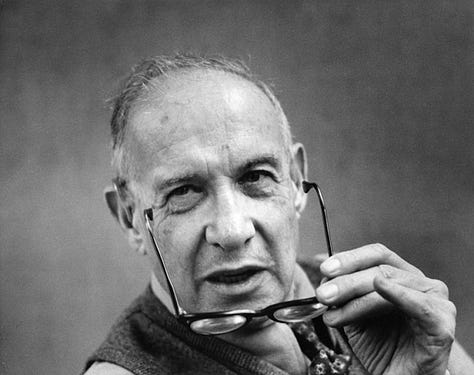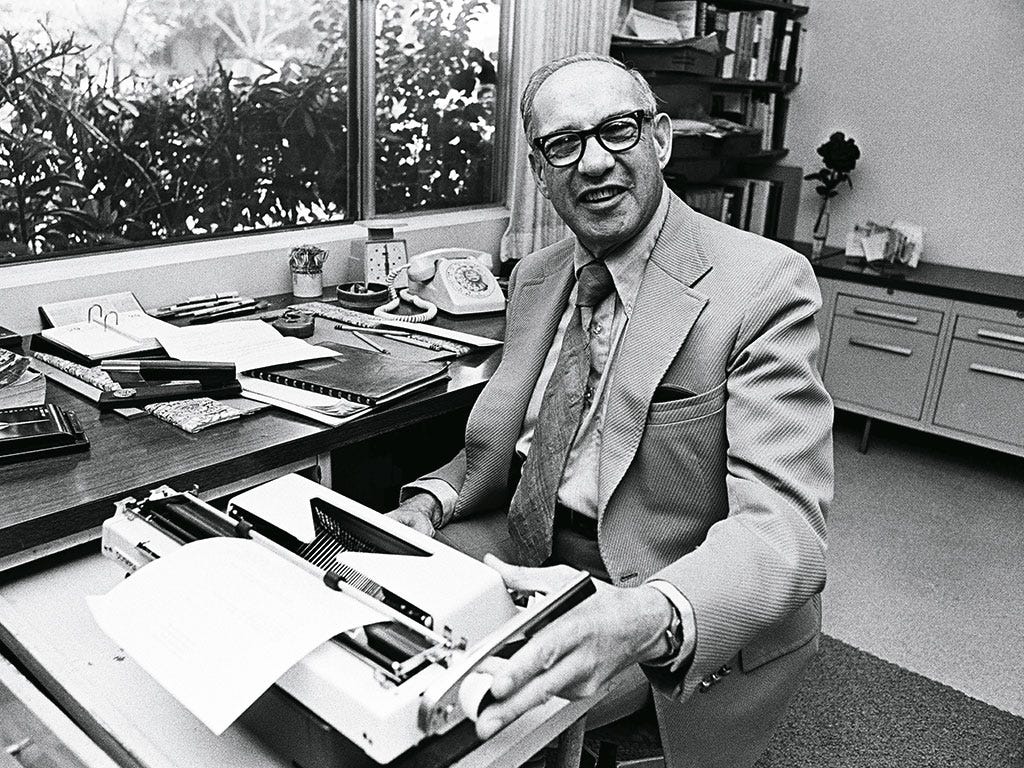The Writer’s Thoughts
John Stuart Mill — On a Culture of Free Thought
From “On Liberty (1859)”
Persons of genius, it is true, are, and are always likely to be, a small minority; but in order to have them, it is necessary to preserve the soil in which they grow. Genius can only breathe freely in an atmosphere of freedom. Persons of genius are, ex vi termini, more individual than any other people—less capable, consequently, of fitting themselves, without hurtful compression, into any of the small number of moulds which society provides in order to save its members the trouble of forming their own character. If from timidity they consent to be forced into one of these moulds, and to let all that part of themselves which cannot expand under the pressure remain unexpanded, society will be little the better for their genius. If they are of a strong character, and break their fetters, they become a mark for the society which has not succeeded in reducing them to commonplace, to point at with solemn warning as 'wild,' 'erratic,' and the like; much as if one should complain of the Niagara river for not flowing smoothly between its banks like a Dutch canal.
I insist on the importance of general culture in a free society, on the fact that no society can be free unless each of its individuals is allowed to mold his own life according to his own character, unobstructed by any outward arbitrary power. For the same reasons it is of the greatest importance that a person should be able to study out his own character, that he should understand his own nature, its strong and weak points, the way in which it will act under different circumstances, what it is that he has to contend with, what are his capacities for good and for evil. Such a study is a thousand times more useful than any amount of moral or religious teaching, any amount of preaching or of instruction in the rights and duties of citizenship. It is only when a person begins to know himself that he can understand the world and the society in which he lives.
Food For Thought



Aristotle |"We are what we repeatedly do. Excellence, then, is not an act, but a habit."
Aristotle, the ancient Greek philosopher and scientist, was a towering figure who profoundly shaped Western thought. Born in 384 BC, he joined Plato's Academy at 18, where he nurtured his passion for knowledge and excellence. He later served as a tutor to Alexander the Great, imbuing him with a culture of learning and excellence that arguably shaped his rule.
Aristotle's influential works spanned various subjects, from physics to metaphysics, politics to ethics, reflecting his belief in the pursuit of knowledge as a form of excellence. His theory of "golden mean" advocated moderation and balance, a fundamental principle in fostering a culture of excellence.
He established the Lyceum, his own institution, furthering a tradition of excellence in intellectual pursuits. Even today, his ideas shape our understanding of excellence and its role in culture. The legacy of Aristotle embodies a life dedicated to knowledge, integrity, and the quest for excellence, underlining the importance of creating a culture that prizes these values.
Peter Drucker | “Culture eats strategy for breakfast.”
Peter Drucker, often dubbed the "father of modern management," was a towering intellectual force of the 20th century. Born in Austria in 1909, he studied law in Germany, migrated to England to escape the rise of Nazism, and eventually settled in the United States in 1937.
His keen analysis of business, society, and people led to revolutionary insights that shaped management theory. Drucker emphasized that corporations are human institutions, propelled by people and their relationships. He pioneered the concept of "management by objectives," promoting mutual understanding and clearly defined goals as the path to excellence.
Drucker's expansive career spanned academia, journalism, and consultancy. He authored 39 books, offering wisdom on diverse subjects from organizational change to innovation. As a consultant, he worked with major corporations, nonprofits, and even governments, urging leaders to foster cultures that value the individual, stimulate creativity, and strive for continuous improvement.
Drucker's conviction was that culture and excellence are inextricable, a belief encapsulated in his famous assertion, "Culture eats strategy for breakfast." He held that a supportive, engaged culture is the key to unlocking human potential and achieving sustained excellence, a principle that remains central to management thought today.
Ralph Waldo Emerson | "The creation of a thousand forests is in one acorn, and Egypt, Greece, Rome, Gaul, Britain, America, lie folded already in the first man."
Ralph Waldo Emerson, a central figure in American literature, is remembered as a pioneering philosopher, poet, and essayist. Born in 1803, Emerson's profound ideas, first articulated in "Nature" (1836), catalyzed the Transcendental movement, forever transforming the American intellectual landscape. He advocated for individualism and self-reliance, believing that personal growth was a key to societal progress.
Emerson's career as a Unitarian minister, abruptly ended by personal tragedy, led him towards writing and public speaking. His speeches stirred audiences, fostering an environment of excellence and intellectual curiosity. His essays, often heralded as the foundation of American philosophical thought, stirred a cultural revolution, challenging the status quo and encouraging individual thought and self-improvement.
Despite his own personal losses - his wife at a young age and later his son, Emerson remained undeterred, channeling his experiences into his works. His life mirrored his philosophies of resilience and striving for excellence amidst adversity.
Emerson's influence extends beyond his lifetime, as he established a culture of excellence, intellectual rigor, and self-improvement - ideals that continue to shape American cultural and intellectual identity today. His life and works serve as a testament to the transformative power of steadfast dedication to personal growth and cultural enlightenment.
The Gallery
"The School of Athens" by Raphael (1509-1511)
Raphael's masterpiece "The School of Athens," painted from 1509–1511, encapsulates the epitome of intellectual and cultural achievement. Housed in the Vatican, this grand fresco showcases a collection of Greek scholars and philosophers, with Aristotle and Plato taking central stage - symbolizing applied knowledge and transcendental philosophy, together illustrating the spectrum of wisdom.
The depiction goes beyond aesthetic appeal; it represents a society deeply committed to intellectual progression, emphasizing the significance of communal knowledge. Each figure is immersed in either dialogue or contemplation, capturing an atmosphere of relentless intellectual curiosity and ambition.
The architectural backdrop, reflecting Bramante's design for St. Peter's Basilica, contributes to the sense of order and cultural refinement, suggestive of the structure and rigor at the heart of scholarly pursuits. Raphael's adept employment of perspective, symmetry, and balance strengthens these themes.
In essence, "The School of Athens" commemorates the vast capacities of human intellect and the ideal spirit of the Renaissance: incessant learning, open dialogue, and the tireless pursuit of knowledge. It stands as a beacon of cultural achievement, demonstrating the vital role of a culture that nurtures intellectual curiosity, encourages active discourse, and consistently seeks greater understanding.









